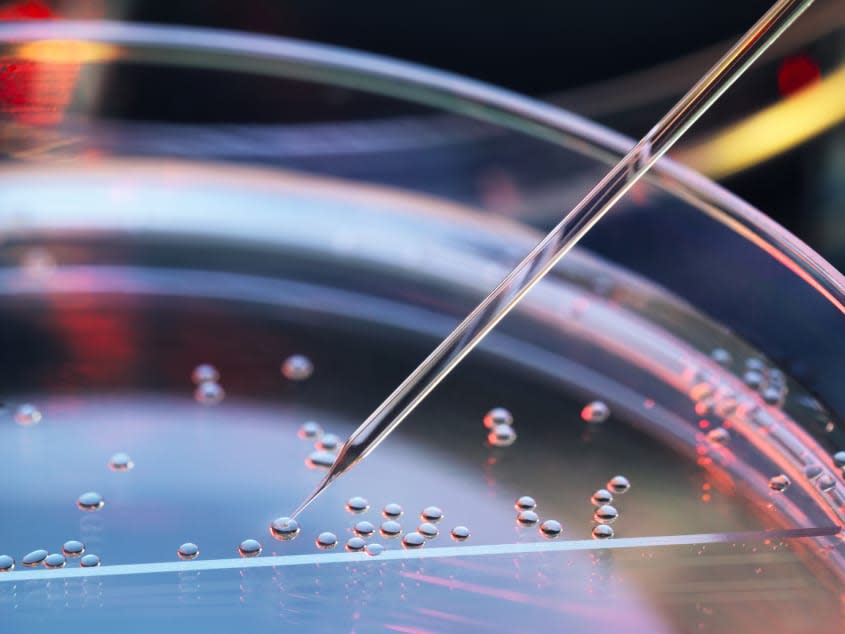Researchers say they created first synthetic human embryo model

A team of scientists in the United States and the United Kingdom said they created the world's first synthetic human embryonic structure from stem cells, an advancement that "sidesteps the need for eggs or sperm," per The Guardian, the first outlet to cover the story.
The researchers said the model embryos resemble the earliest stages of human development, meaning they lack organs such as a heart or brain. Still, the hope is that the structures can help scientists better understand genetic diseases and miscarriages, and that the research sheds light on the "black box" of human development, or the period that follows two weeks of fertilization.
Dr. Magdalena Zernicka-Goetz, a professor of biology and biological engineering at CalTech and the University of Cambridge, described her team's findings in a presentation for the International Society for Stem Cell Research's annual meeting in Boston. She said a scientific journal had accepted the research but it has yet to be published. Her team and a rival group in Israel had previously reported creating similar "embryoids" from mouse stem cells.
Zernicka-Goetz's lab grew each model embryo from a single human embryonic stem cell that developed into three different tissue layers, she told CNN. The models included cells that could develop into a yolk sac, placenta or embryo. She also said her lab's structures were the first to have germ cells that could become eggs and sperm. Still, Zernicka-Goetz wanted to "stress that they are not human embryos."
For some, the research underscores how quickly the science in the field has bypassed the law, as many countries, including the U.S. and the U.K., lack any regulations for creating or working with synthetic embryos. The advancement also highlights the "urgent need" for laws that provide "a framework for the creation and use of stem cell derived models of human embryos," James Briscoe, associate research director at the Francis Crick Institute, said in a statement.
You may also like
Why Republicans are trying to make Trump's trial about Hillary Clinton
Researchers say they created first synthetic human embryo model
Southern Baptists expel Saddleback, 2nd church over female pastors, approve further clampdown

